La Clemenza di Tito in the Amsterdam Concertgebouw and the Wimbedon final of 1980. About King's dramas with historical instruments and wooden rackets. He didn't want respect to be synonymous with fear. More than the end of his reign, he feared the day that people would only accept him as their emperor because they were afraid of him. The time when the populace no longer accepted leaders for which they didn't have to be afraid was over. Mozart granted this emperor with very beautiful music, as a support for those who want to see the development of human civilization drawn with an ascending line. Emperor Titus was an example of self-reliance. However, many of his successors would not care much for the ideals to which he adhered. And perhaps it was because of one of those successors, Eliogabalo - who resided on the other side of the Amstel River (with the Dutch National Opera) on the same night Titus was in town - why La Clemenza di Tito in the Concertgebouw was far from sold out on 18 October. It was the weeks of the king's drama. A period that started with Eliogabalo by Cavalli, followed by Mozart's La Clemenza di Tito and ended with a film about a tennis match. Tennis match? I didn't know who Shakespeare was, but the drama of the king who had to face the rebellion was made palpable by its performers Björn Borg and John McEnroe as only a few films or theaterplays managed to do since. By playing one of the best tennis matches ever, King Borg and rebel McEnroe made the Wimbledon final from 1980 an experience that awakened the feeling in me that there can't be drama without beauty. The natural need for drama, the need we satisfy by watching movies, listening to music and all, comes with the yearning for the beauty without which that drama could not exist, wouldn't have an impact on us. I look at the footage of this final again and regret that there is – like in classical music – no such thing as a Historical Informed Performance practice in tennis. Tennis with wooden rackets from an era before oversized composite rackets tipped the balance between power and technique in favor of power and changed the outlook of the sport forever - with disastrous results. (Tennis as a spectactor's sport is dead, a match without Federer is not worth watching.) As a game to watch, tennis from 1980 is an art form that pleads for a return to the rackets of old days. Back to the time when technique prevailed and each player had its own distinctive style. In the history of the sport, there probably never was a player who played so purely on technique as John McEnroe. Despite his - by times - incomprehensible behaviour on the court, he would be the keeper of the flame for some time in the era that followed when the hard-hitters entered the scene. But also he would eventually be blown away by players who did not yet have a fraction of his feeling for the ball. (I guess it's Ivan Lendl's fault after all.) I heard the orchestra before, they played symphonies by Joseph Haydn. The year prior, founder and conductor Frans Brüggen had passed away and they played the symphonies - in his honor - without a conductor. On instruments from the 18th century - or replicas – they delivered a Sturm und Drang-kind of performance that was very much in the here and now and kept the music far away from a tour in the museum. With the The Orchestra of the Eighteenth Century it was as if your favourite band was in town. It was music to take to the proverbial desert island. Music that will prevent you from going numb when you are completely on your own. With a wooden racket stringed with gut – a worthy tool for a mighty job - King Borg beats down the revolt of rebel McEnroe. A temporary victory it is because the fight breaks something inside of him. With this heavily fought victory the king realises that the end of his reign is near. Also for Borg the insight sinks in that the time in which a person is immortal – may imagine himself to be invincible – is a limited one. One year later Borg retreated from the game, burned-out and yearning for anonymity. I had to find another idol. How unhappy is the fate of those who reign! To us is denied what is given to the lowliest. That needy peasant [...] sleeps peacefully, passes his days in tranquillity. (Tito) In La Clemenza di Tito, Mozart shows himself in addition to a composer of very beautiful music, a great connoisseur of the human psyche. He keeps all aspects of the story and its characters neatly in place. All personages are allowed to show themselves in all their strength and weakness. They keep their appetite for drama within reasonable limits. In Deirdre Angenent's Vitellia that drama tends too much towards extremes. (She wants Titus to marry her but co-instigates the revolt against him when that wish remains – initially – unfulfilled.) It was like Angenent was trying, especially in the first act, to emphasize something that doesn't need any further explanation. The music that Mozart provided for Vitellia can do very well without the schrieks in the higher register that suggest that volume should be synonymous with drama. The latter is exactly what this production - with the orchestra, their choice for authentical instruments and a semi-staging - refutes so successfully. Mozart and his last opera don't need large gestures and excessive resources to be enthralling. Mozart had about six months to live when he accepted the assignment for La Clemenza di Tito. Death, though he may not have suspected it himself, was on his trail. For the recitatives, his student Süssmeyr was called upon to help him and the maestro himself came up (as always) with some of his most beautiful arias. The roles for castrate singers, dating back to Mozart's time, are nowadays sung by mezzosopranes. A conversion that – from a dramatic point of view – does not always turn out to be without problems. It worked well here, perhaps because of the semi-staging in which you tend to take the image you see less literally - more as an abstract representation of things than with a full staging. In the Sixtus of mezzo-soprano Paula Murrihy, Tito's best friend who initiates the rebellion, the conflicting emotions of someone who betrays his best friend are easily perceptible. Murrihy sings a brave Sixtus who, despite the betrayal that he commits, was a little bit the hero of the evening for me. Conductor Kenneth Montgomery kept the fire burning in Mozart's last opera. Sitting behind a harpsichord to accompany the recitiatives, he kept everyone involved and on edge. At no time did this opera feel like a rush job. (Mozart took the commission to compose "Tito" because he needed the money - he completed it in about three months). In the capable hands of The Orchestra of the Eighteenth Century, this intermediate dish – Mozart was occupied with the premiere of Der Zauberflöte whilst composing it – turned out to be a copious diner. At no time did the attention or flow dropped. I prefer this Tito to Der Zauberflöte – an opera I didn't manage to fall in love with yet. In this production La Clemenza di Tito wasn't necessarily a plea for an opera that isn't among Mozart's favorites (like the Da Ponte operas and Der Zauberflöte) but made its case, in all its excellence, completely selfevident. Reducing a possible question "Why stage Tito?" to a silly one. If Anders Dahlin's Titus might have been a little light of voice - it was not in complete contradiction with his benevolent, you could say, soft character - with Laetitia Gerards as a delicate Servilia and Henk Neven as a powerful Publio, the vocal line-up was far above average. In Jeroen Lopes Cardozo's direction, the master showed himself in his simplicity. For instance; the fire in the Capitol (during the revolt) was depicted with a red light on stage with figurants running into the hall, mingling with the audience. No need to bother for more, it was as basic as it was convincing. To commit yourself to doing good and, ultimately, forgive those who betrayed you. It is - by my knowledge - rarely seen in the world of opera. Titus does so, and therefore he rises far above the majority of the personages that usually populate the genre. It made him a bright star in days that are quickly growing darker. He came, saw and conquered. Orchestra of the Eighteenth Century
Capella Amsterdam Kenneth Montgomery - conductor Jeroen Lopes Cardozo - direction Anders Dahlin - Titus Paula Murrihy - Sixtus Deirdre Angenent - Vitellia Laetitia Gerards - Servilia Rosanne van Sandwijk - Annio Henk Neven - Publio
0 Comments
The inventive use of light does justice to the cult of the sun. Helios will be satisfied with this Eliogabalo, a co-production of the Dutch National Opera with the Opéra National de Paris. History only sees him with the greatest possible contempt. The stories about him are surrounded by accolades baptized in sulfur. Varius Avitus Bassianus - a 14-year-old high priest of the Syrian sun god Elagabal won the throne of the Roman Empire in the third century A.D. As Heliogabalus (Eliogabalo) he turned his reign in such an scandalous outrage that he was murdered by his own body guards, after just three years in office. Historians throughout the ages have been united to condemn this embodiment of sin and misconduct in the most terrible kind of words. With "... the most cruel and infamous wretch that ever disgraced humanity and polluted a throne ..." (the 19th-century American historian S. W. Stevenson) and the unsurpassed "Not only the filthiest of all who walk on two legs but even of all who walk on four legs" (Historia Augusta, a Roman collection of fourth-century imperial biographies) Eliogabalo defies all description and triggers the imagination. No wonder that this rotten apple of a human being is endowed with books, a movie and an opera. After Ercole Amante in 2009, the composer Francesco Cavalli returns with Eliogabalo to the Muziektheater in Amsterdam. Considering the outracious material that a theater-maker can draw from when it comes to a piece about Eliogabalo, Cavalli's opera plays it rather safe. Yet the original opera was rejected by his patrons and it had to wait more than 300 years for his world premiere (which it eventually got in 1999 in Crema, the birthplace of Cavalli). This rejection was probably due to the time and place of conception (Venice in the 17th century where Jesuits had a severe influence on social and cultural life). The obvious associations with nepotism, the abundant presence of prostitution and the murder of an emperor were all just a little too much for the establishment of Venice at the time. ... the most cruel and infamous wretch that ever disgraced humanity and polluted a throne ... Central to the opera are not the (supposed) excesses and atrocities of Eliogabalo, but the relationships between the love pairs Alessandro (the cousin of Eliogablo) and Flavia Gemmira (the woman Eliogabalo wants for himself) and Giuliano and Eritea. The opera may have stripped Eliogabalo from the majority of the excesses that are attributed to him, his opera version is nevertheless a wretched human being. Right at the beginning of the opera he violates Eritea and when Alessandro asks for permission to marry Gemmirra, Eliogabalo agrees but immediately make plans to get rid of his cousin. The rivalry between the self-proclaimed sun king and his cousin stems from the love and lust they feel for the same woman. The libretto is not so interested in the possible political motives behind this rivalry. In this carnival of souls, the cult of the sun is beautifully served by the tasteful and inventive use of light (by Antoine Traver). Helios would be pleased by this production in which Thomas Jolly spices up the meagre story of the libretto with a few events taken from Eliogabalo's biography. Thomas Jolly already had some experience with royal dramas. He directed Shakespeare's Henry VI (all three parts in a 18-hour marathon performance!) and Richard III. For Eliogabalo he goes further back in time and broadens his horizon with his first opera production. As said, Jolly adds some elements from Eliogabalo's biography to his staging. Most likely apocryphal is the story about the banquet in which the sun child buried his guests in violets and other flowers, so that some of them actually choked to death, being unable to crawl out to the top. The scene inspired Lawrence Adema-Tadema to his most famous painting (The Roses of Heliogabalo) and Louis' Fantomas' Feuillade to his film 'The Roman Orgy'. Thomas Jolly adds the power flower, this rain of roses, (which is not mentioned in the libretto) to the banquet at the end of the second act in which Eliogabalo tries to poison his cousin Alessandro. (An attempt destined to fail because cousin-dear doesn't show up.) Most stories about Eliogabalo may well have been born of a somewhat overzealous fantasy, but it is save to say that the child emperor did everything he could to enrage the Roman establishment. Eliogabalo, who came from Syria, made the sun god Elagabal in Rome the centrepiece of all gods, even chief god Jupiter had to take a step back, and by violating the chastity of a Vestal Virgin (Eliogabalo asked her to marry him) he commited sacrilege. Above all that, he behaved rather campy - 'gender-neutral' to say it with a bit of nowadays flavor - and with his exotic dances in honor of Elagabal he distanced himself far too much from how a Roman emperor should behave. Eliogabalo awaited the ‘damnatio memoriae', a posthumously proclaimed curse by the Roman senate, in (dis)honor of his filthy memory. A year ago, this production of Cavalli's opera was premiered in Paris and, like then, the baton in Amsterdam is held by Leonardo García Alarcón (a researcher in the field of Baroque music, I already drowned most pleasantly in 'Il Diluvio' of Falvetti, a piece he saved from obscurity). And like in Paris, the leading role is sung by Argentine Franco Fagioli. Fagioli's countertenor sings the role of Eliogabalo - in which the spoiled child, the dilapidated army leader and the horny womanizer come together - with virile tone. He is a man without morality. In the epitome of Fagioli, he is a grown-up child in a candy store. In addition to this Eliogabalo, the Alessandro of Ed Lyon is the moral compass of this opera. Even after it turns out that Eliogabalo wants to kill him (in order to get Gemmirra in his bed), Alessandro remains loyal to his emperor. It is not until the end that Alessandro parts from his servility when he allows himself to be crowned as new emperor and he acquits the soldiers who have lynched Eliogabalo and his loyal accomplices Lenia and Zotico from persecution. His initial hesitation to let the murder of a rightful ruler go unpunished echoes the objection the censors had against the opera at the time. The murder of a king or emperor was a controversial topic (it went too much against God's plan). And until long after Cavalli, a royal murder would cause discomfort in the world of opera (about two centuries later Verdi had to relocate the story of 'Un Ballo in Maschera' from Sweden to America because a literal reference to a king’s slaying - the opera was based on the assassination of the Swedish king Gustaaf III - could not be staged). Eliogabalo, an opera from the early days of the genre, is small scaled. Chamber music kind in design. It was originally endowed with no more than 5 or 6 musicians. This production has transformed that small scale to the big stage of a modern opera house. The orchestra has been extended to about 30 musicians. The past is reflected in the staging by a small staircase that enters in the orchestral pit. The stairs, used as an extra stage left opportunity for the singers who mingle with the members of the orchestra, is a concertant element in a fully staged production. Led by the orchestra, Eliogabalo is a baroque procession - in steady pace and a transluctant, organic sound - in which historical instruments see their story accompinied by modern, spectacular images in the scenery of Thibaut Fack and the beautifully dressed singers by Gareth Pugh. After more than three centuries the music – with its baroque-styled features that are mirrored in the singers' acting – has not diminished in expressiveness. Along the long lines of recitatives, half-aria's and arias, the listener is drawn in the story that lasts for more than three hours. But length is a strength, it's like staring at a pendulum (something not unknown to devotees of Wagneroperas). It's like a tour in a world where you find yourself in the capable hands of reliable guides. It is not until the third act – where the story is entirely focused on the two love couples - that the attention drops. Before Eliogabalo ends up in the orchestral pit with a severed head (spoiler alert), the long arch of music and storyline loses its momentum. The recitatives get a little bit stuck in staccato and the possibilities to add something spicy from Eliogabalo's biography to the production seem to have faded. However, with an enthralling end, worthy of a Salome-staging and a convincing cast it does not keep this production away from a final judgement surrounded by accolades that, for this occasion, smells of flowers. Thomas Jolly adds the power flower, this rain of roses, (which is not mentioned in the libretto) to the banquet at the end of the second act in which Eliogabalo tries to poison his cousin Alessandro. I am the Sun, who is cold! World, world, world, heat me with your love, your worship, your passion..... And you [...] are the flowers ordered....? Yes? Are the flowers there above? Then drop them...... I think all this is so dirty...... I love a lot of celebrating, of drinking, of being crazy, but I always want to have it beautiful and wonderful for me, and see..... Bah! all this disgust makes me nausea, while my stomach is empty and my throat, wormwood bitter, yearning for a drunk..... Wine, wine, wine, wine! And then flowers, flowers, flowers..... Let the flowers rain on everything that is legion! Louis Couperus (The Mountain of Light - 1906) Dutch National Opera - Amsterdam
12 - 26 October 2017 Verdi's Schicksal Opera by the Dutch National Opera LOVE A man falls in love with a woman who, because of his descent, is inaccessible to him. In this Romeo and Julia variation number 36,694, the father, who likes his daughter predestined for someone else, has to pay for his obstruction with a bullet coming out of a gun that goes off by accident. The pistol that goes off because it falls on the ground, but nevertheless produces a perfectly targeted shot, is one of the few coincidences in La Forza del Destino by Giuseppe Verdi that turns out to be a major plot twist (in fact, coincidence is synonym with disaster here). It’s the accident with the gun that emphasizes the tragedy of Don Alvaro, who did not meant wrong. After the death of her father Donna Leonora flees with Don Alvaro. (The story then moves from Spain to Italy.) The two lose each other and Leonora, thinking that Alvaro is dead, retreats into a hermitage where she is kept alive by the monks of a nearby monastery. Don Alvaro, who has joined the army, happens to save the life of Don Carlo, Leonora's brother who wants revenge for the death of his father. Since everyone goes under an alias by then, Don Alvaro and Don Carlo don't know from each other who they are. This will change when Don Alvaro is injured in battle and Don Carlo is entrusted with a box that contains a letter and a portrait from Leonora. Don Carlo disregards the request not to look into the box and finds out Don Alvaro's true identity. “Rache riete ich mir!” instead of “Baby, baby, baby” is Don Carlo’s adage (this is after all the Wagner & Heavy Metal- and not the Verdi & Justin Bieber-website) and when Don Alvaro has recovered from his wounds the two men fight a duel that is stopped by fellow soldiers. Don Alvaro flees into a monastery. Seven years go by when Don Carlo finally manages to find him there. In the duel that follows Don Carlo is mortally wounded and Don Alvaro flees into the hermitage (which is coincidentally near the monastery) where Donna Leonora lives / exists. With "Pace, pace mio Dio!” Donna Leonora wishes for the peace of death. An aria of superb lamentation. An aria in which all aspects of the drama are coming together and are falling into place. It took us three hours to get there and that's a bit long. It is the production of the Dutch National Opera that justifies, more than libretto and music do, that lenght. It is the production of the Dutch National Opera that justifies, more than libretto and music do, the lenght of La Forza del Destino HONOR The word "honor" in La Forza del Destino is an excuse not to contemplate one's own actions and an abbreviation for the male frustration about sex (especially the sexuality of women). Highly topical but that doesn't mean the story is ageless. La Forza is a chest of drawers from which arias, duets and choruses are drawn that serve only emotional and entertainment purposes. And to achieve that, Francesco Piave's libretto supplies every character with a crocodile mind (there is a Frank Castorf-reference lurking here - see the Bayreuther Castorf Ring). Those characters remain as far removed from introspection and/or contemplation as possible. No rationale can save them from themselves. Above anything else, the characters have an obligation to drama. Drama that is both means and goal at the same time. Drama that is so emphatically sought after that it becomes ridiculous and if brought up, very often, comes with comical effect. In the story of La Forza, we will search in vain for philosophical or political ideas. This opera is a soap opera and the story is not bigger than the story itself. Most multi-layered in this parade of primal minds is Don Alvaro. His good intentions notwithstanding, the racism of Leonora's father and Don Carlo's blind desire for revenge, deal him a bad hand. But also he, the kind-hearted, can suddenly switches from conflict-avoiding behaviour to combat mode when he feels offended. Good for us, because it results in another beautiful aria. In order to lift La Forza's story line above it silly meanderings, a comparison between La Forza and Wagner's Ring cycle was made in the introduction of this production / performance: Alvaro = Siegmund, Preziosilla = Valkyrie and Leonora left in her hermitage = Brunnhilde left on her rock. It's a comparison as far-fetched as it is grotesque. From Wagner's character development and ambiguity Verdi remains at more than just a giant arm’s length away. Not that it's bad. La Forza del Destino is the result of a productive day at the office and the light-cynical tone of the preceding text refers mainly to the libretto, not the music. The Dutch National Opera makes the most out of this nitwitted story that comes with some beautiful and gorgeous tunes. REVENGE Before he sets himself to a staging of Korngold’s Das Wunder der Heliane in Berlin (in March 2018, the second Heliane this opera season, see Opera Vlaanderen’s production here), Christof Loy committed himself to Verdi’s Schicksal Opera. Just like in his staging for Mussorgksi's Khovanshchina last season, Loy uses a spacious stage with high walls and a Personenregie that reflects the dynamics of the music. It is an enlightening staging - with the exception of the utterly superfluous video projections in the worst kind of karaoke traditions – that provides Verdi's La Forza with some extra background information. A staging in which we are given an insight into the dystopian relationships within the Calatrava family. In the overture we see a brother of Leonora and Carlo dying at young age, it may give us a bit of insight into Don Carlo's irreconcilability with his sister later in the opera. Donna Leonare is sung by Eva-Maria Westbroek and her gigantic voice houses all colours of the drama. In the higher tones, however, she turns out to be a bit too monochrome. Here the power comes at the expense of eloquence. Franco Vassallo's Don Carlo has an impressive dark brown baritone that doesn't let his revenge cool down and Don Alvaro from tenor Roberto Aronica is the result of diligent, be it not unsympathetic, work. His voice and acting eventually convince and our heads, shaking in disbelief for how much wrongdoing one man can endure, grant him with a place in our, sometimes sceptic, heart. There is a curse in La Forza – from the father who curses his daughter after he is mortally wounded - that is only effective because the people involved believe in it. There is more superstition in the story. Carefully played by a gypsy woman. Her voice sounds a bit meagre for a mezzo soprano but the stage presence, acting and dancing qualities of Veronica Simeoni make Preziosilla one of the most interesting and powerful characters of this Forza. The production provides her with a beautiful choreography, Simeoni’s Preziosilla is a highly credible man eater, the only one capable of looking through the covers of Carlo and Leonora, and with the gaze of someone who looks down from a future time on a time of superstition and backward social codes, she is someone who, despite her not always good intentions, can count on the sympathy of a 21st century audience that can relate to her independence. It may be the arias, duets and glorious choruses that lift the entertainment value of La Forza far above average, they have been composed with applause in mind. And once you hear that, you can't unhear it anymore. The way Verdi (and with him many of his colleagues) finishes an aria (on a downstroke) to demand a response from the audience feels like a door-to-door salesman who shoves his foot between the door, forcing you to buy something. And despite tradition, it’s like a commercial break, an unpleasant interruption of the flow, it keeps me from acclaiming most of the times - despite the fact that the singers have my utmost respect. Those few seconds of silence, just after you have heard something beautiful, are by far preferable over the, often dutiful, applause after an aria. In order to make Wagner's objections to Italian vanity even more tangible, there was also applause after the overture - the opening that, like the rest of the score, was played swiftly and translucent under the baton of Michele Mariotti.
Drama thrives mythologization. And it is said that the curse in La Forza infected its performers. In 1960, Leonard Warren, a bass baritone, collapsed during a performance of the opera and died. The story goes that it stopped Pavarotti from singing in La Forza. In the category "Opera's with a curse", Forza is in the eminent company of Wagner's Tristan & Isolde, which, in the field of descending interpreters, goes a few steps further. In 1865, Ludwig Schnorr died a few weeks after singing Tristan's premiere - the legend goes that he left this world with a kind request for Wagner not to compose such demanding vocal lines anymore. Also among conductors, Tristan made its victims. Both Felix Mottl and Joseph Keilbert got, in the midst of conducting this opera, a heart attack that proved to be fatal. In search of the meaning of life, things that happen to you can feel like divine intervention. God’s interference that tries to set you on a certain path. Fortunately, in the field of superstition and myth, there is nothing a sober mind and progressive insight can’t put into perspective. When you're young, you think that bad luck and ill-fate are intentional. If you are older you know better; then you know that they are, very often, the result of a coincidental meeting of circumstances. CURTAIN Coincidence makes sure that Don Carlo eventually gets his revenge on his sister Donna Leonora. It's the last thing he does before he dies from the injuries Don Alvaro has inflicted on him. Don Alvaro stays behind alone, once more lamenting his fate and the opera closes in a sublime fade-out. Making sure the audience has to save its applause for the last aria until the moment the curtain falls. |
TIMELINE
July 2024
|

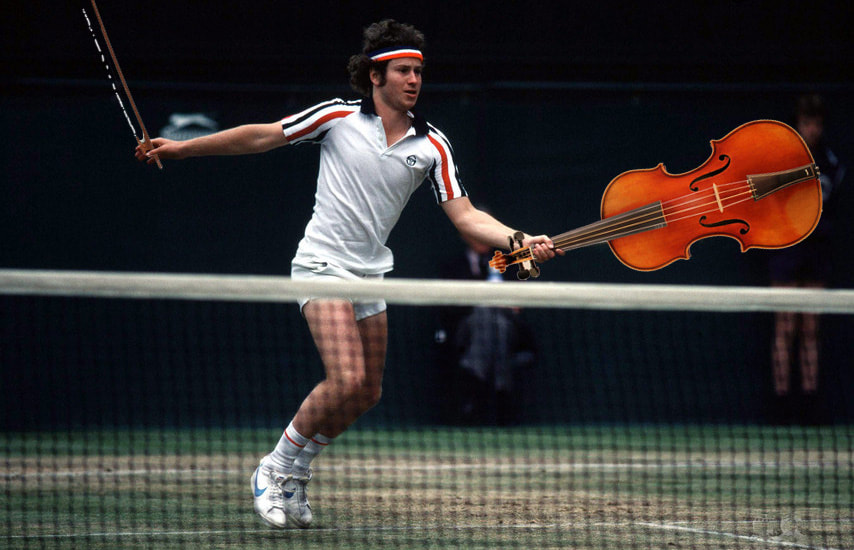
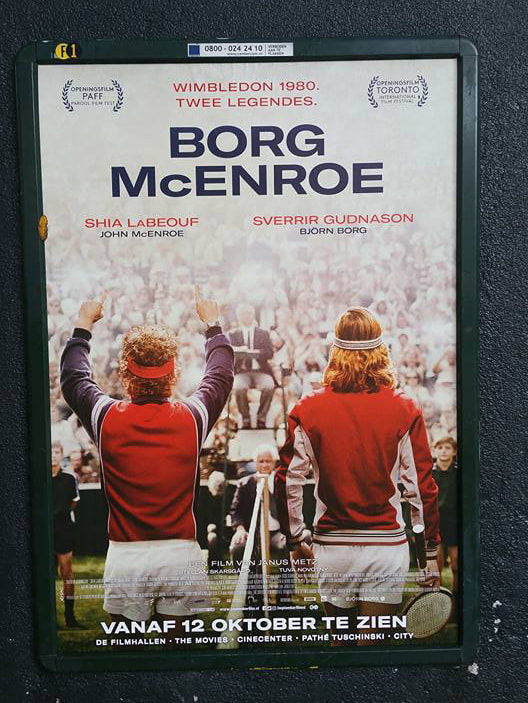
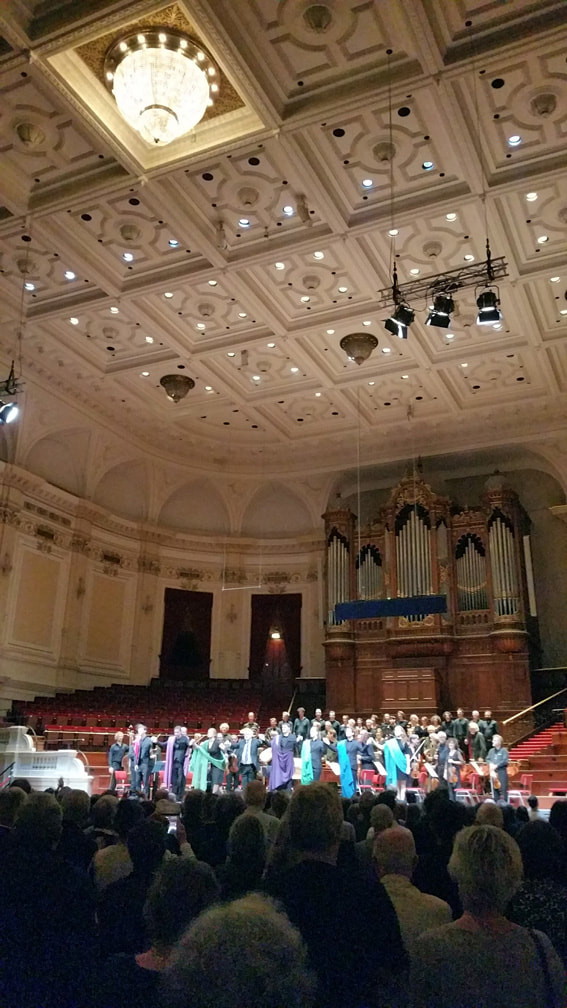
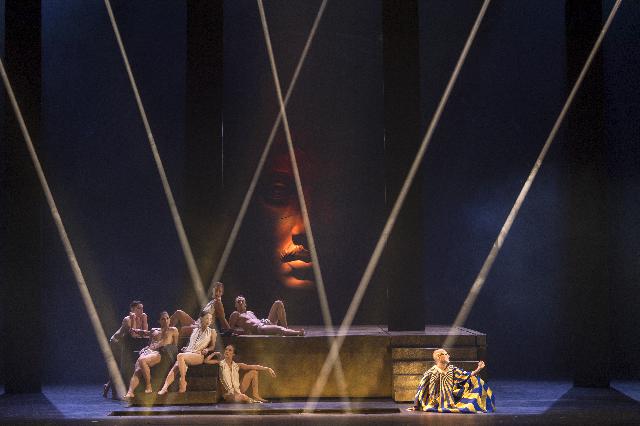
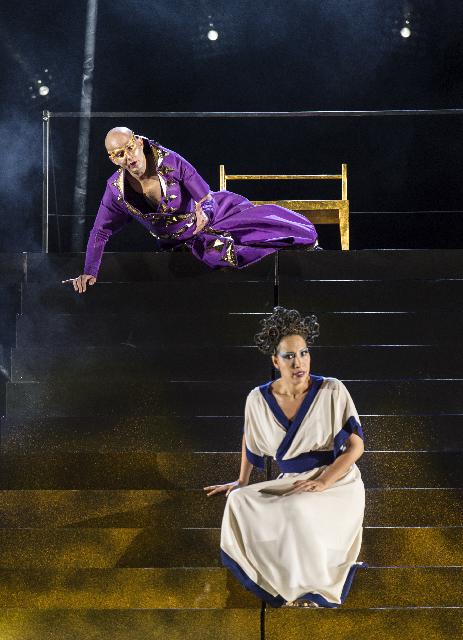
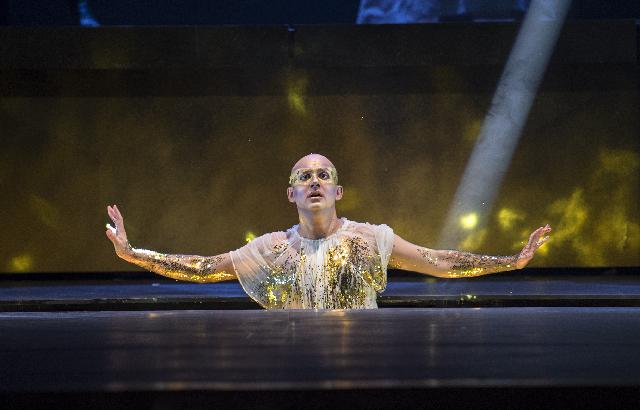
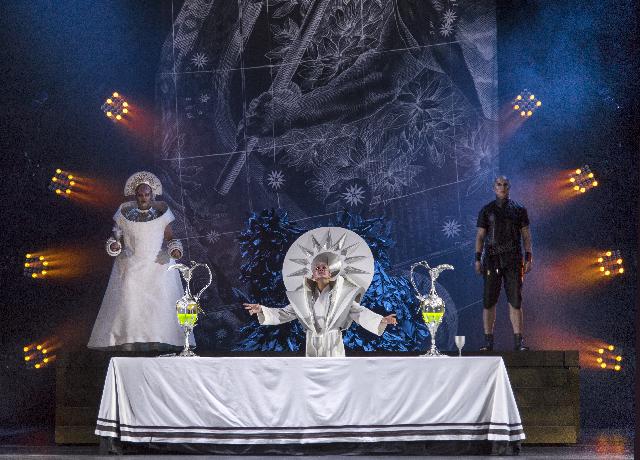
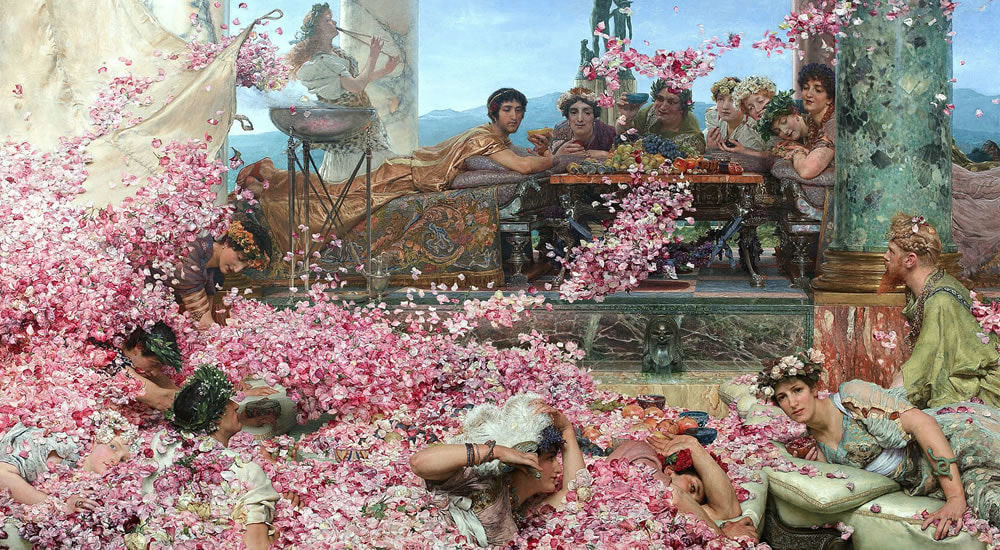
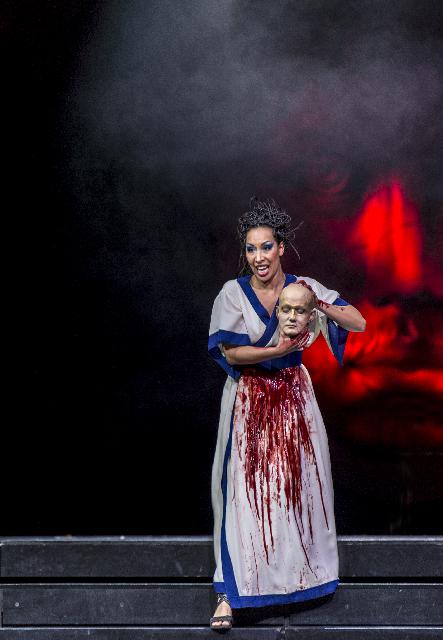
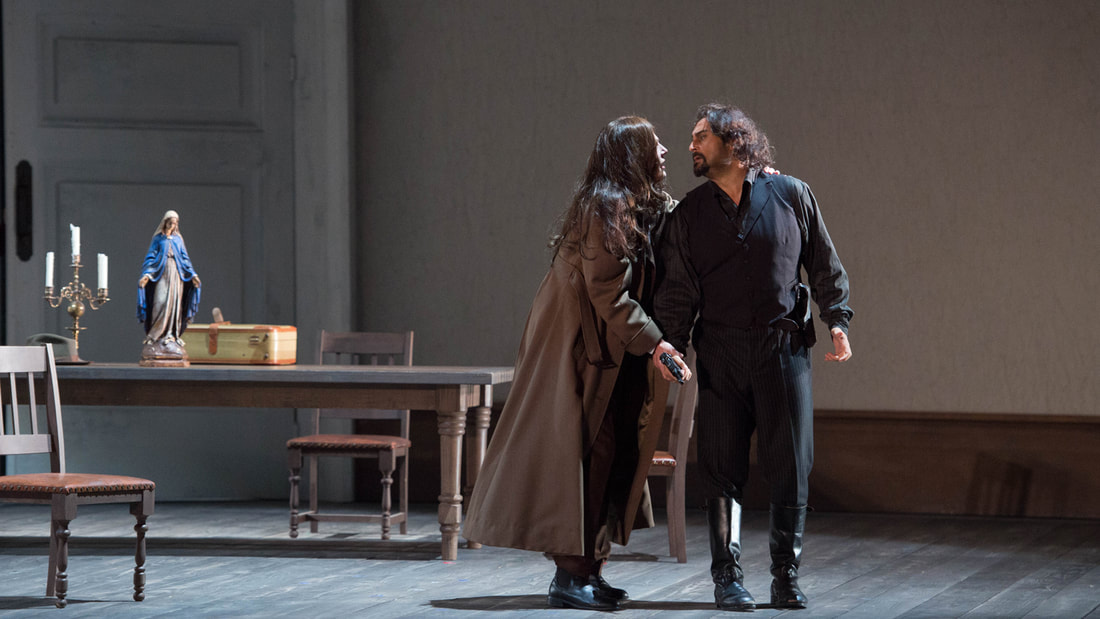
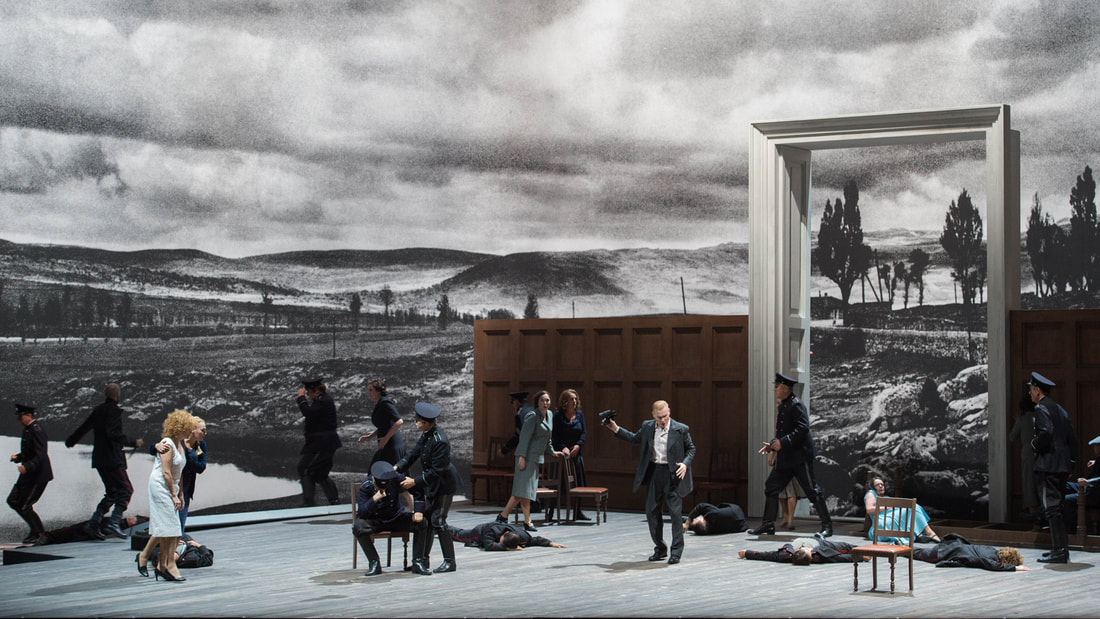
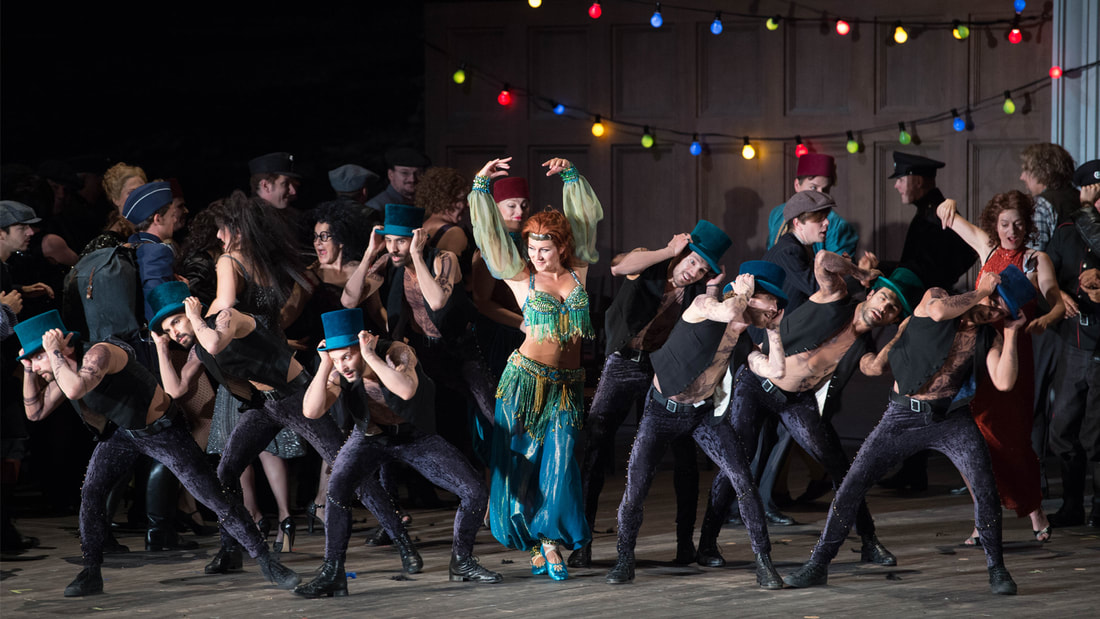
 RSS Feed
RSS Feed